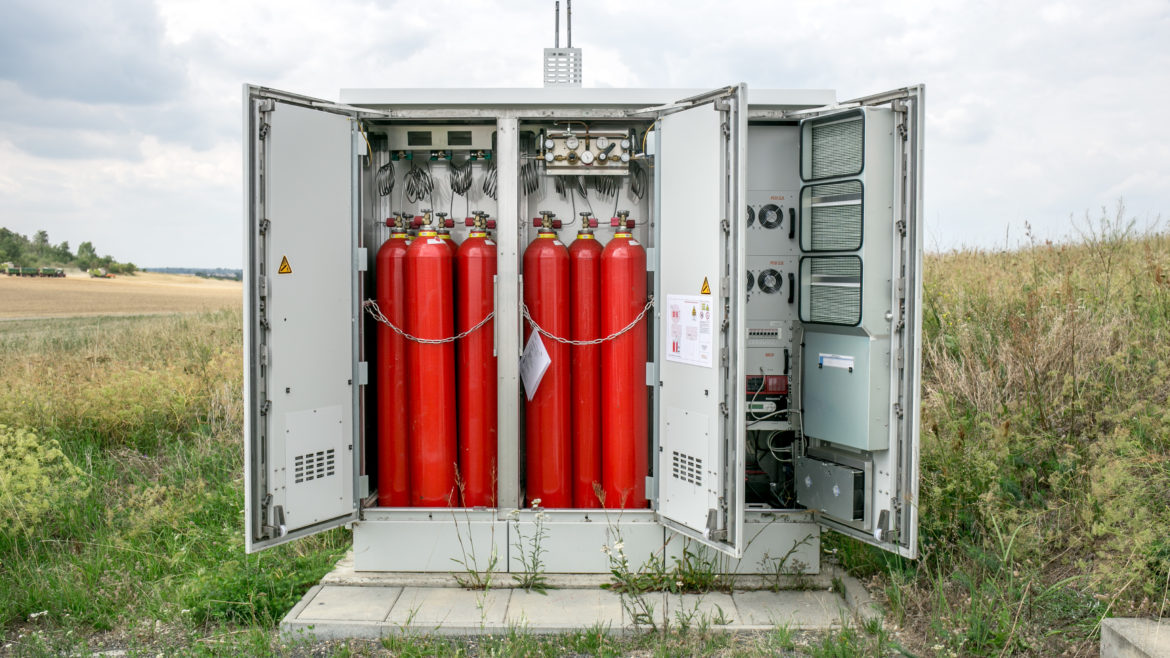There are things that quite literally should always be electrified. Uninterruptible power supplies, for example, are highly relevant in various industry sectors, and emergency power units should deliver energy in an instant, no matter where they are located. An increasingly digital world must be able to rely on this. Fuel cell systems offer what is needed.
Fuel cell systems as emergency power systems and for uninterruptible power supply are available today in various output ranges. The spectrum ranges from large modules with a several hundred kilowatt capacity to small systems in the low Watt area. The potential areas of application are as varied as their size, since environmentally protective effects are yielded on every scale.
Clean Power Net – a Strong Alliance
Established in 2010, the strategic partnership Clean Power Net (CPN) comprises 21 players from industry and research. After numerous successful demonstration projects the network now deals with the market introduction of climate-friendly fuel cell applications for industry and business. A constant exchange of experience between users and system manufacturers and the involvement of scientific institutions ensures that synergies can be harnessed and problems addressed in a targeted way. The CPN is being funded under the National Innovation Programme for Hydrogen and Fuel Cell Technology (NIP II) as an innovation cluster, through which the importance of the technology for the off-grid and uninterruptible application area is underlined.
Fuel Cells as Emergency Power Systems for Bos Digital Radio (Emergency Services Radio)
Uninterruptible power supply is indispensable, above all in critical infrastructures such as the digital radio network of the authorities and organisations providing emergency services (“Behörden und Organisationen mit Sicherheitsaufgaben” (BOS)). Fuel cell emergency power systems provide emergency power from digital radio locations in increasingly more German regions. Extremely environmentally-friendly operating conditions and an uncomplicated and cost-effective remote maintenance make the emergency power system attractive for application in practice. An additional cost saving is the result of the almost unlimited shelf life of hydrogen, so that in contrast to diesel systems, no fuel exchange must be carried out, even in longer downtimes. Particularly in the area of emergency power supply with typically low operational times and high requirement for operational readiness, this represents a major advantage of the hydrogen and fuel cell system.
Within the National Innovation Programme for Hydrogen and Fuel Cell Technology (NIP) different projects are being funded through the Federal Ministry of Transport and Digital Infrastructure (BMVI), whose goal was to demonstrate the level of maturity of fuel cell technology under challenging climate and technological conditions and with difficult access.
In Brandenburg 115 systems already provide a reliable emergency power supply for the BOS network since 2013. 35 fuel cell systems were installed in BOS radio in Baden-Württemberg.
In Bavaria 44 BOS digital radio network base stations were also equipped with fuel cell emergency generating units, which were designed for the state’s increased requirements of their lower-alpine and alpine regions.
Following the successful completion of this demonstration phase, in 2018 a funding call under NIP II on the market activation of fuel cell systems “on autarchic energy supply of critical or off-grid infrastructures” was implemented with a funding volume of around 5 million €. Over the course of this funding call a further 505 BOS base stations could be fitted with fuel cell emergency generating units in the following federal states:
- Baden-Württemberg: 200 systems
- Bavaria: 180 systems
- Brandenburg: 56 systems
- Hesse: 60 systems
- Saxony: 9 systems
Under NIP there are potentially further funding calls to be issued following the market activation funding guideline in the area of fuel cells for off-grid and uninterruptible power supply.
Fuel Cells as Off-grid Power Systems for Emerging Countries
On behalf of the Federal Ministry for the Environment, Nature Conservation, Nuclear Safety and Consumer Protection (BMUV), NOW GmbH supports demonstration projects in the field of hydrogen and fuel cell technologies for off-grid/decentralised power supply in newly industrialising countries within the framework of the BMUV Export Initiative Environmental Protection (EXI for short). The aims of these activities are environmental protection, infrastructure development and local value creation, but also opening up the market for German technology companies that can offer expertise in this field.




